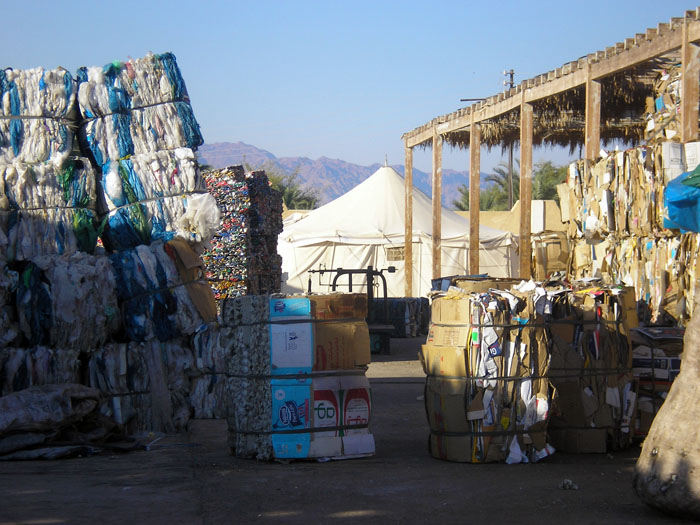A 20-minute drive from the main highway takes you to a Bedouin squatter area on the city’s outskirts from where Nawal, a young woman, sets out early each day with her younger sister for the main refuse tip, to sift through rubbish.
"We used to have a good life. We had a lot of animals, we used to make milk and butter and cheese," said Nawal, reminiscing about her past. "It was a sweet life. Everything was available. Now it's awful."
The estimated 30,000 Bedouins in the Sinai peninsula have had to contend with severe drought over the past few years, and this has forced them to change their lifestyles: No longer are they able to derive an income from their animals.
"When the pastureland disappeared, we had to leave... We have had to come to Sharm al-Sheikh and settle down next to the rubbish dump," said Otayeq Sallam.
One of the draws for the Bedouins is that the Sharm al-Sheikh tourist industry churns out rubbish all year round.
Recycling project
|
Photo: ReliefWeb  |
In the tourist resort of Nuweibaa, some 150km north of Sharm al-Sheikh on the Gulf of Aqaba, an NGO called Himaya (protection) is helping needy Bedouins.
It collects and sorts rubbish, selling some of the solid waste to cover costs and making the organic waste available free of charge to Bedouins it deems need help, allowing them to sell it on.
"We separate the solids from the organic waste, which is distributed free to needy Bedouins. The solid waste is compressed and sold by the tonne to factories in Cairo," said Walid al-Sayyid, who works on the project.
Proceeds from the sale of the solid waste also help the NGO fund regional development projects. One such project is the renovation of classrooms in primary schools in South Sinai. Another is the creation of green spaces in urban areas, he added.
However, not all local Bedouins are satisfied: "The NGO has made deals with local hotels to get their garbage. Bedouins can no longer get it for free, which is unfair," said Ibrahim Sweillam, a Bedouin who does not receive waste collected by the NGO because he is not classified as being in need. For him, Bedouins are better off organising their own affairs.
la/ar/cb
This article was produced by IRIN News while it was part of the United Nations Office for the Coordination of Humanitarian Affairs. Please send queries on copyright or liability to the UN. For more information: https://shop.un.org/rights-permissions




